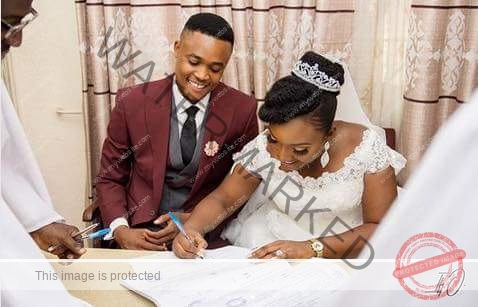A Managing Partner at Law Plus Attorneys-at-Law, Mr Dennis Adjei Dwomoh, has clarified that having a white or church wedding does not necessarily ens
A Managing Partner at Law Plus Attorneys-at-Law, Mr Dennis Adjei Dwomoh, has clarified that having a white or church wedding does not necessarily ensure a monogamous marriage.
In an interview in Accra last Tuesday with The Mirror, he stated that while monogamous marriages required complete commitment, allowing no additional spouses unless legally dissolved, many people mistakenly assumed that a church wedding guaranteed exclusivity.
Mr Adjei Dwomoh, who was speaking ahead of the first edition of Ghana’s Marriage Governance Conference scheduled for Tuesday, August 27, at The British Council in Accra, explained that couples who undergo customary marriages can have their union blessed in a church or through a white wedding. However, he cautioned that not all churches and pastors are licensed to perform marriages that prevent spouses from marrying others.
“If you perform your marriage at a church, which is not licensed and the pastor is not licensed, that marriage is just a mere religious ceremony. And in that regard, your partner can decide to marry an additional man or marry an additional woman.”
“At every white wedding, there is an interplay of a social event, a religious ceremony, and sometimes the statutory aspect of the marriage. So when you want to marry under church marriage, for it to be monogamous in accordance with statutes so that your husband cannot marry an additional one, there are certain requirements that you have to meet.”
He advised that couples seeking a monogamous marriage through church or white wedding must first find out if the churches and pastors are licensed to do so.
“It is important to ask the church to show you their certificate indicating that they are gazetted. So like the driver’s licence, if the car has a driver’s licence number, you get to see.
You can also ask whether or not the pastor who is about to celebrate the marriage has also been gazetted. This is to enable you not to make a mistake thinking that you are getting a monogamous marriage,” he stated.
Alternatively, the couple, he said, could register their marriage at the court or the local assembly and proceed to the church or any venue for a blessing of their union.
Marriages in Ghana
Mr Adjei Dwomoh explained that while all the three types of marriages — Customary Marriage (Traditional marriage), Civil or Ordinance Marriage (Court marriage) and Islamic Marriage — were legal it was only the civil or ordinance marriage which was monogamous.
He said while the two other types allowed the spouses to take more partners, the Islamic marriage permitted up to four wives for a man while spouses in a monogamous marriage could not.
“When you go under monogamous marriage, because it’s a statutory marriage, you cannot jump out of it to add a second person, otherwise it amounts to bigamy which is an offence. So if you want to leave a monogamous relationship, the law requires that you go to court for a divorce, and you cannot divorce because you have fallen out of love, or because you have just gotten another girlfriend or boyfriend, ”explaining that divorces must be processed in accordance with the law and under the Matrimonial Causes Act which has about five grounds for divorce.
“Unless you’re able to satisfy the court that the marriage has broken down beyond reconciliation, the court will not grant you a divorce.
About the conference
The Marriage Governance Conference is being organised by MarryRight Ghana Ltd in partnership with the Attorney-General’s Department, and the Registrar General’s Department.
The conference seeks to bring together stakeholders and experts to foster a deeper understanding and promote best practices in marriage governance.
The Head of Operations, MarryRight Ghana Ltd, Barimah Owusu Agyemang, told The Mirror that prior to the conference, his outfit had been actively engaging with diverse stakeholders to ensure comprehensive and inclusive discussions at the event.
The conference, he said, would clarify the issues related to the various types of marriages in Ghana.
“We are looking at the various pastors who serve as marriage officers, the licensed imams who also officiate Islamic marriages, and then the local assemblies who also have a very key role to play with respect to the registration of marriages at the local level. We will also look at all the problems that each of these bodies or each of these groups face with respect to the marriage governance industry.”
MarryRight Ghana
MarryRight Ghana is dedicated to assisting the public meet the legal requirement of marriage in Ghana.
It provides the procedures to follow to legally register one’s marriage and also assist prospective couples to access relevant materials and institutions on marriage.
On its website, www.marryrightgh.com., the organisation has a database of the list of venues (churches and other venues) and ministers licensed to officiate marriages across the country.
Barima Owusu Agyemang said they were currently working on adding new features such as divorce, custody and other subjects under marriage governance.
